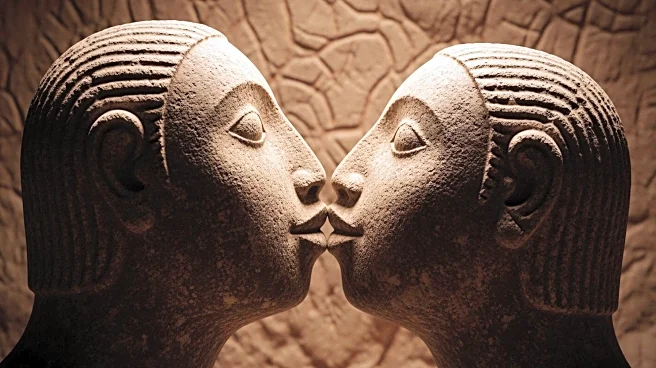What's Happening?
A recent study conducted by the University of Oxford has uncovered evidence suggesting that kissing evolved in the common ancestor of humans and large apes approximately 21 million years ago. The research,
published in Evolution and Human Behavior, indicates that Neanderthals likely engaged in kissing as well. The study utilized a cross-species approach to reconstruct the evolutionary history of kissing, defining it as non-aggressive mouth-to-mouth contact without food transfer. The findings suggest that kissing is an ancient trait retained over the course of evolution, present in most large apes. The research also highlights the shared oral microbes and genetic material between humans and Neanderthals, supporting the notion that kissing occurred between these groups.
Why It's Important?
The study provides significant insights into the evolutionary history of kissing, a behavior that carries cultural and emotional significance in many human societies. By examining kissing through an evolutionary lens, researchers can better understand the diversity of sexual behaviors exhibited by primates. The findings challenge the notion that kissing is merely a cultural invention, suggesting it may be an evolved behavior. This research offers a framework for future studies on kissing behaviors in nonhuman animals, potentially influencing how primatologists record such behaviors. Understanding the evolutionary origins of kissing can also shed light on social norms and contexts across different human cultures.











